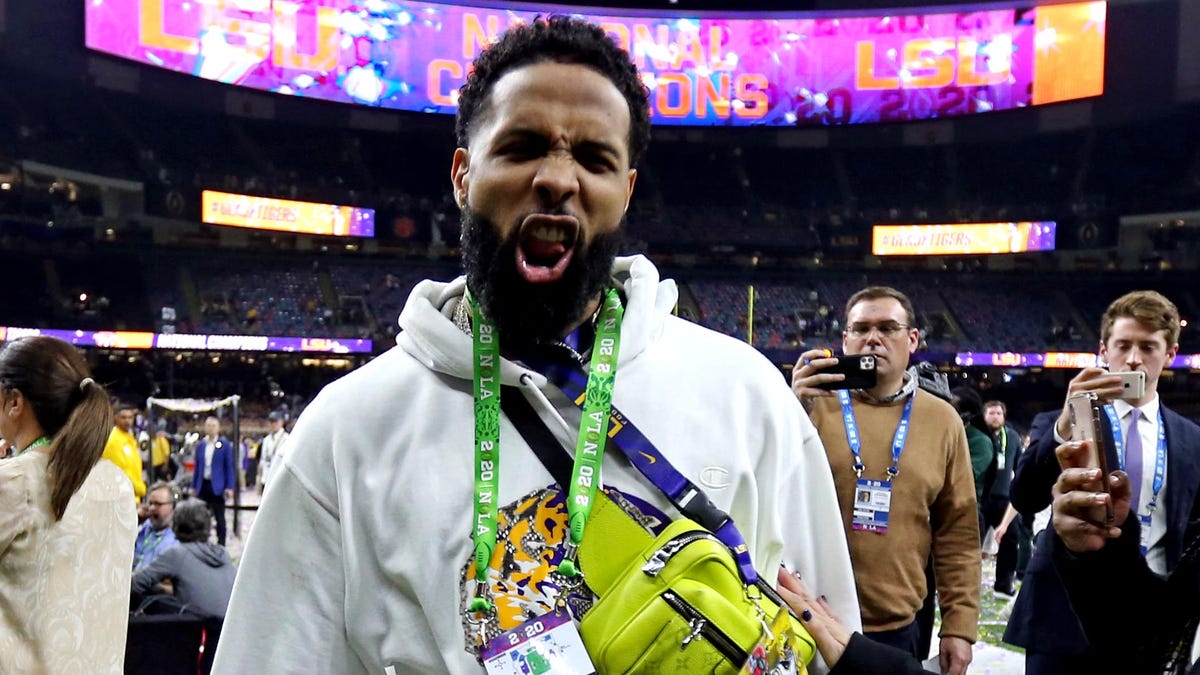S
SEC Sports

After OBJ-LSU drama at title game, College Football Playoff officials to review sideline access for guests
CFP director Bill Hancock told USA TODAY Sports his group will review its policy for sideline guests after Odell Beckham Jr.'s antics at title game.
Officials of the College Football Playoff will review the practice of allowing people outside the participating teams, such as former players or celebrities, on the sideline during the national semifinals and championship games, executive director Bill Hancock told USA TODAY Sports on Thursday.
NFL star and former LSU player Odell Beckham Jr. created a controversy and a possible NCAA violation when he was caught on video after Monday’s national championship game on the field, giving money to some LSU players. The school, which first said the bills were fake, later determined Beckham handed out some real money. This could be a violation of NCAA rules if it’s determined athletes with eligibility remaining received cash.
Beckham then was accused of a misdemeanor simple battery charge after the Cleveland receiver appeared to slap a security guard's buttocks Monday in the LSU locker room after the Tigers defeated Clemson to win the national title. An arrest warrant was issued Thursday, New Orleans Police public information officer Aaron Looney said.
“Being on the sidelines is a privilege,” Hancock told USA TODAY Sports. “Along with any privilege comes responsibility, because the focus should be on the people playing and coaching in the game, rather than on any visitors. The CFP will be reviewing its policy for allowing guests onto the sidelines and into locker rooms at future games.”
Having former athletes, celebrities or other non-team members on the sidelines during games is quite common in college athletics. Schools generally are allowed to make their own determination on who is granted access – something that could change in the College Football Playoff if the committee decides to change its policy.
Hancock said for the three playoff games, schools get “a set amount of credentials and they use them as they see fit. Of course, most are needed by coaches, trainers, managers, equipment people and other folks who have direct game duties. Players on the bench do not need credentials, of course."
Messages to LSU on whether the Beckham Jr. incident would cause the school to reassess its policy were not immediately returned.
The issue of a potential violation of NCAA rules, at present, is in LSU officials’ hands. NCAA rules require the schools to make sure of their athletes’ eligibility to compete, although they can seek NCAA staff interpretations of various situations. In addition, schools are responsible for the actions of what the rules call representatives of their athletics interests – and Beckham almost certainly would fall into that category for LSU.
So, for now, LSU has the task of investigating the incident, determining what happened, whether that constitutes an NCAA rules violation and whether that should impact the eligibility of any athletes who intend to keep playing in college. LSU would be responsible, as needed, to declare athletes ineligible and then submit a reinstatement request to the NCAA national office staff. NCAA policy states: “The institution is responsible for developing complete, accurate and thorough information prior to submitting a reinstatement request.”
